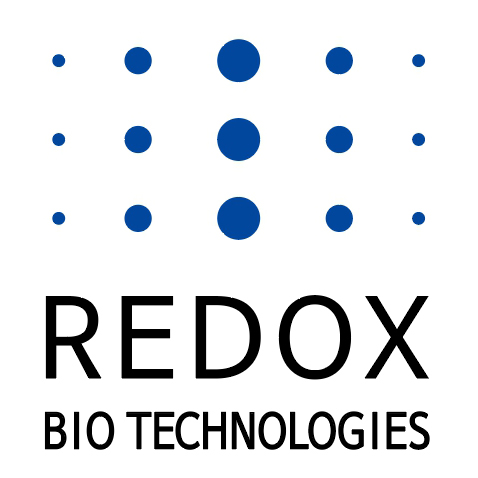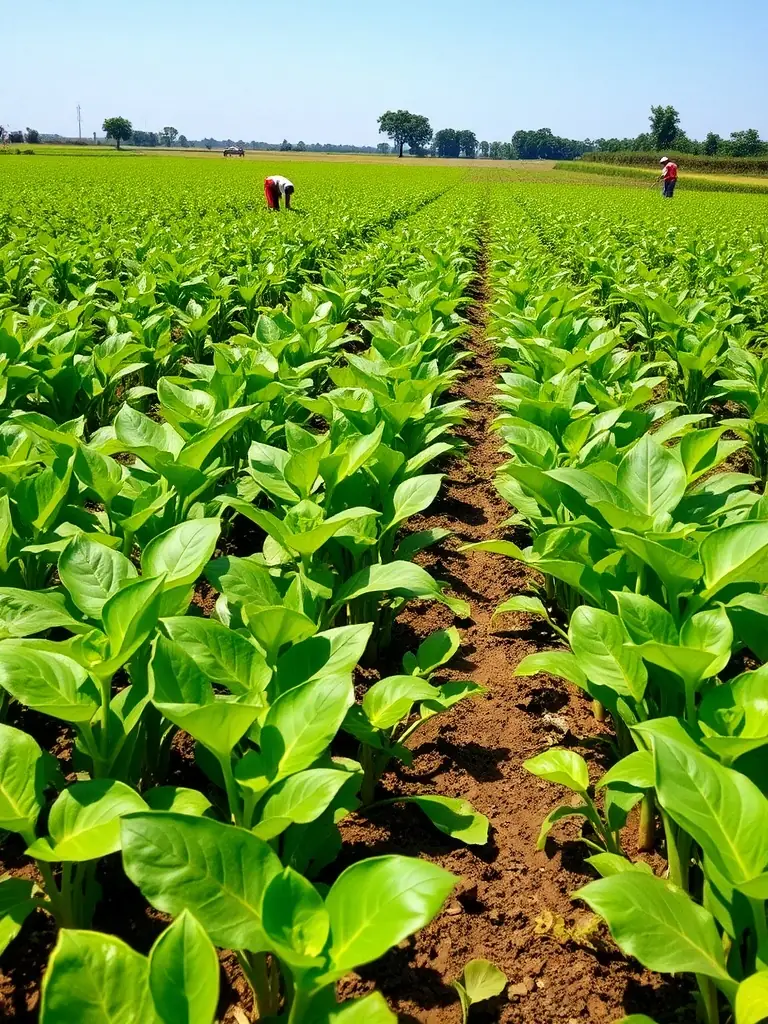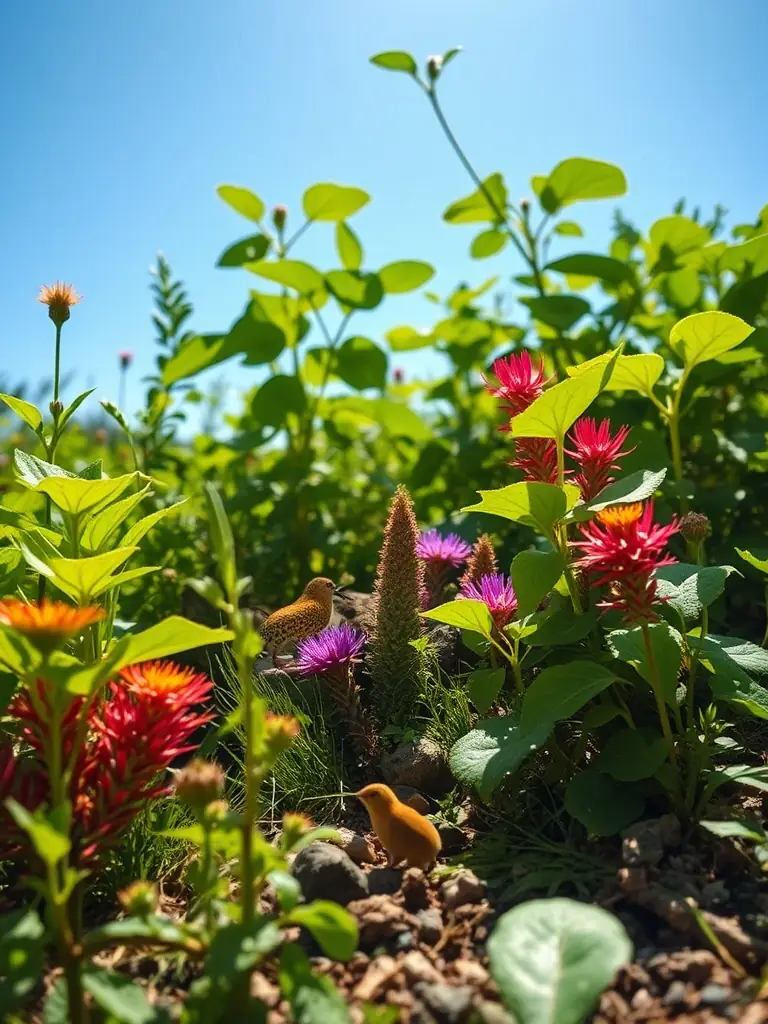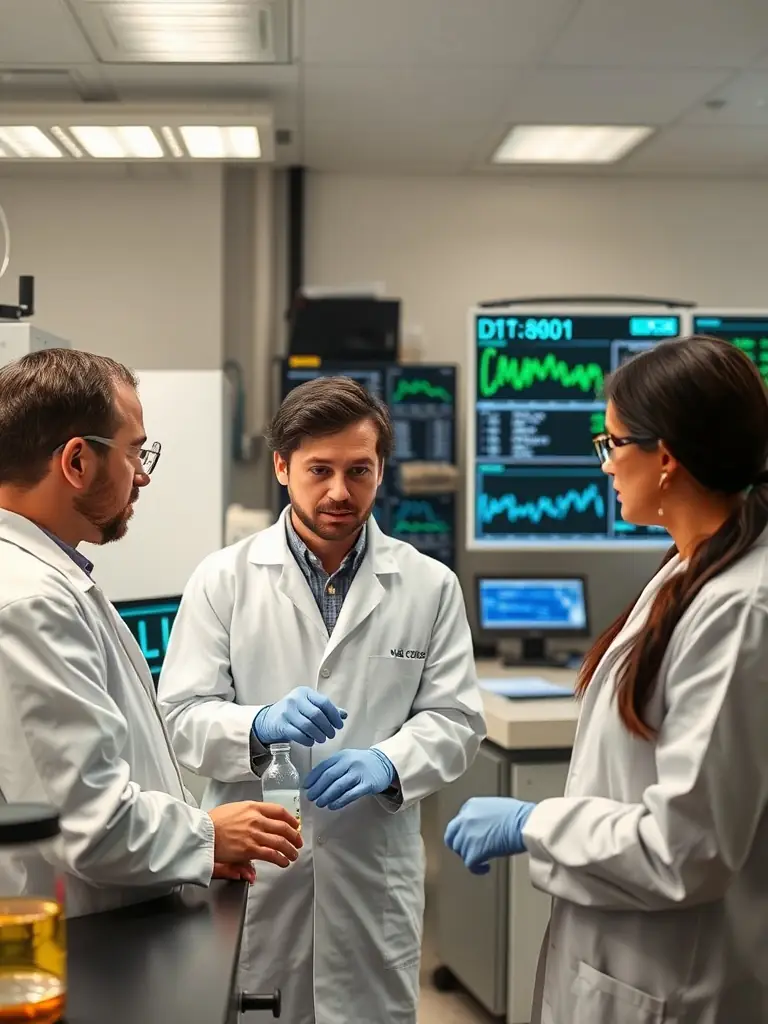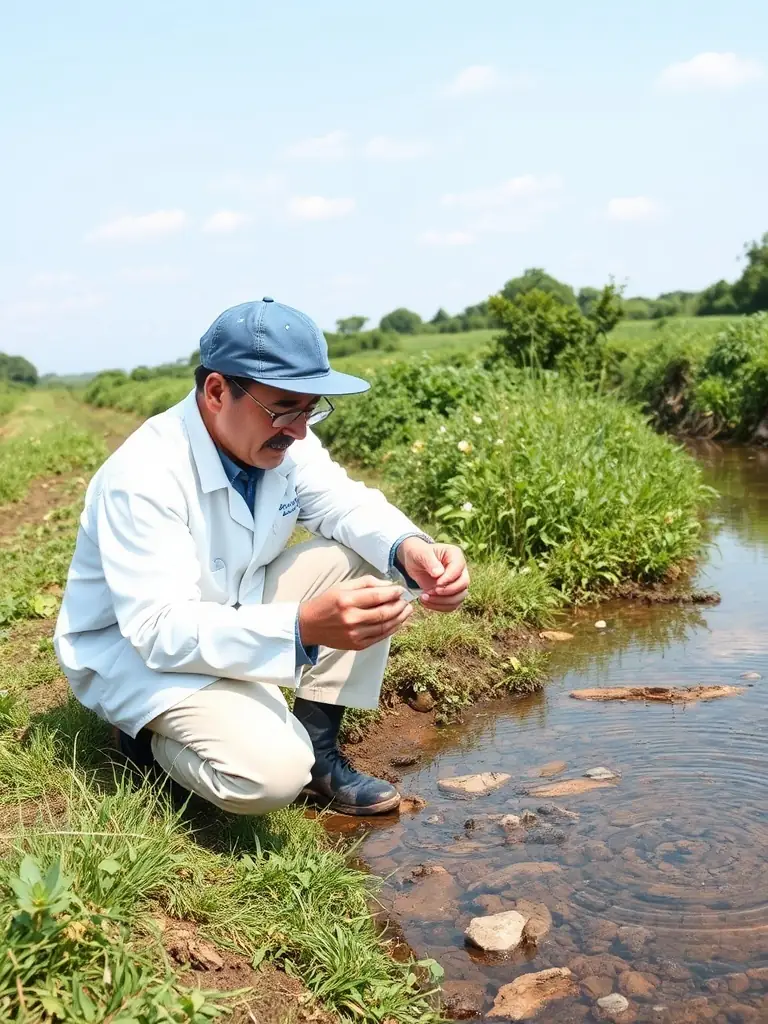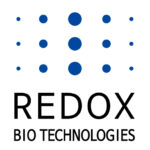Korea Soil Institute Overview
Overview of the Korea Soil Institute
The Korea Soil Institute is a nonprofit research organization aligned with the mission and approach of the European Union (EU) Soil Strategy 2030, conducting innovative research focused on restoring soil health and improving the environment. By utilizing RedoxStone technology, the institute effectively neutralizes soil pollutants and enhances beneficial microbial activity, contributing to the establishment of a sustainable agricultural ecosystem. These efforts not only strengthen the soil’s carbon sequestration capabilities, aiding in climate change mitigation, but also play a critical role in ecosystem restoration through biodiversity conservation.
The Korea Soil Institute’s sustainable soil management aligns with the key focus areas of the EU Soil Strategy, which include:
- Preventing and Restoring Soil Degradation: Engaging in restoration research and projects to preserve healthy soil structures and address issues such as erosion and acidification.
- Establishing Sustainable Soil Management Practices: Promoting eco-friendly soil management methods, such as organic and pesticide-free farming, to minimize ecological impact.
- Mitigating Climate Change through Carbon Sequestration: Utilizing soil as a carbon sink to reduce greenhouse gas emissions and address climate change.
- Protecting Soil Biodiversity: Enhancing the diversity and resilience of native microorganisms to conserve soil biodiversity.
- Innovating Soil Monitoring and Research: Employing advanced technology for continuous soil monitoring and data-driven policy development.
Through collaboration with domestic and international research institutions, the Korea Soil Institute reinforces scientific evidence and accumulates empirical data to develop policies aligned with EU standards. The institute actively contributes to regional and global soil protection initiatives. This integrated approach plays a crucial role in addressing climate change and advancing environmental restoration, supporting the vision of zero soil pollution by 2050.
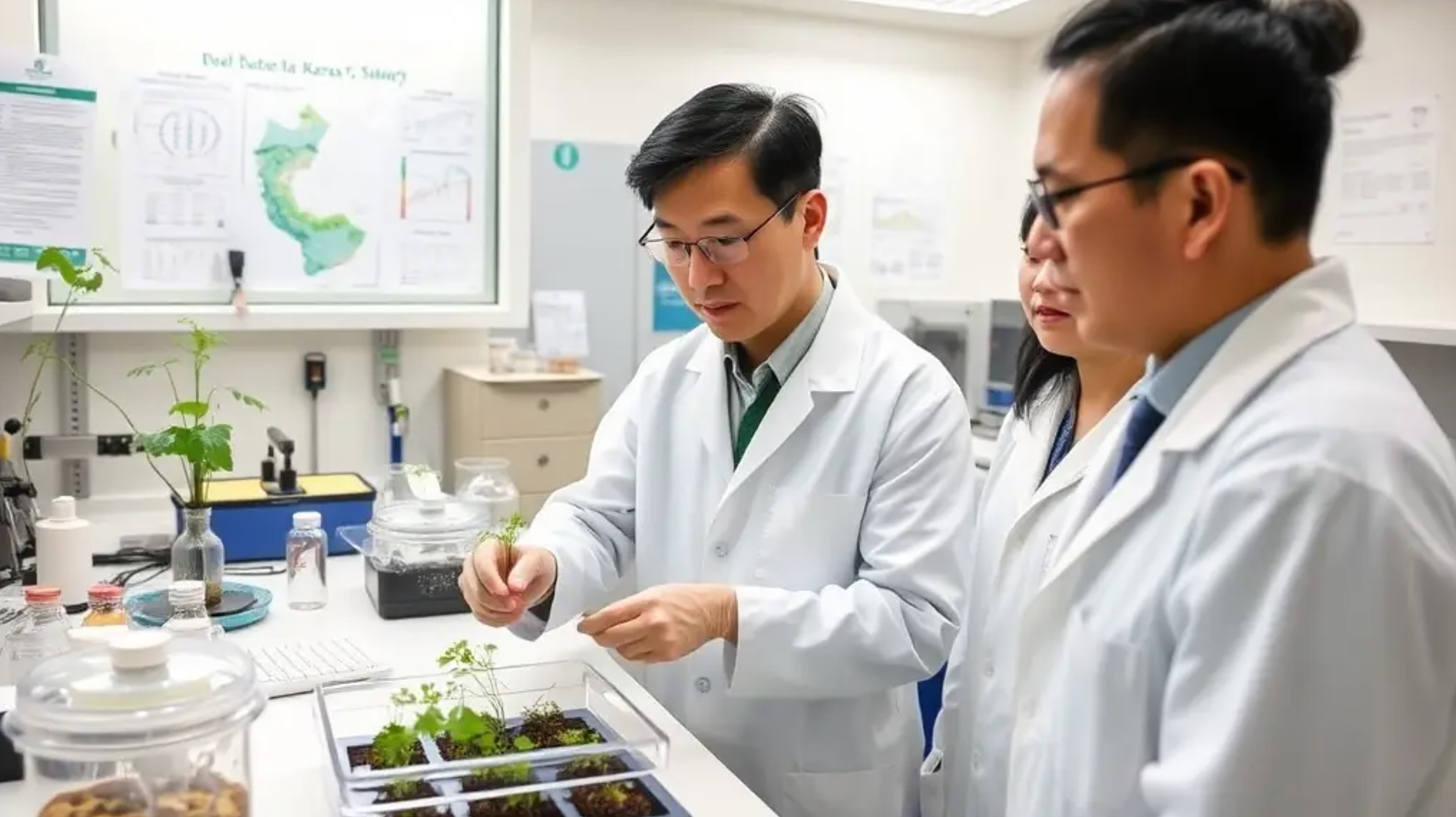
Korea Soil Institute Introduction
Purpose of Establishment Korea Soil Institute
The Korea Soil Institute was established to contribute to sustainable ecological restoration through the application of RedoxStone, focusing on the restoration of soil health, carbon sequestration, and environmental improvement. Soil pollution in agriculture and the environment has significant impacts on climate change and human health, creating an urgent need for scientific and sustainable solutions to address these challenges.
RedoxStone plays a vital role in effectively neutralizing harmful substances and promoting the activation of beneficial microorganisms, which are essential for restoring soil structure and health. These properties also enhance the soil’s carbon sequestration capacity, contributing substantially to climate change mitigation and positively impacting ecosystem restoration through biodiversity conservation.
Leveraging this research, the Korea Soil Institute supports national and international environmental goals and conducts essential soil research and demonstration studies to advance global objectives such as carbon neutrality, biodiversity conservation, and ecosystem restoration. Through multifaceted research initiatives, the institute is dedicated to developing innovative solutions for soil restoration and environmental improvement, providing empirical evidence of their effectiveness, and contributing to global efforts to create a sustainable environment for future generations.
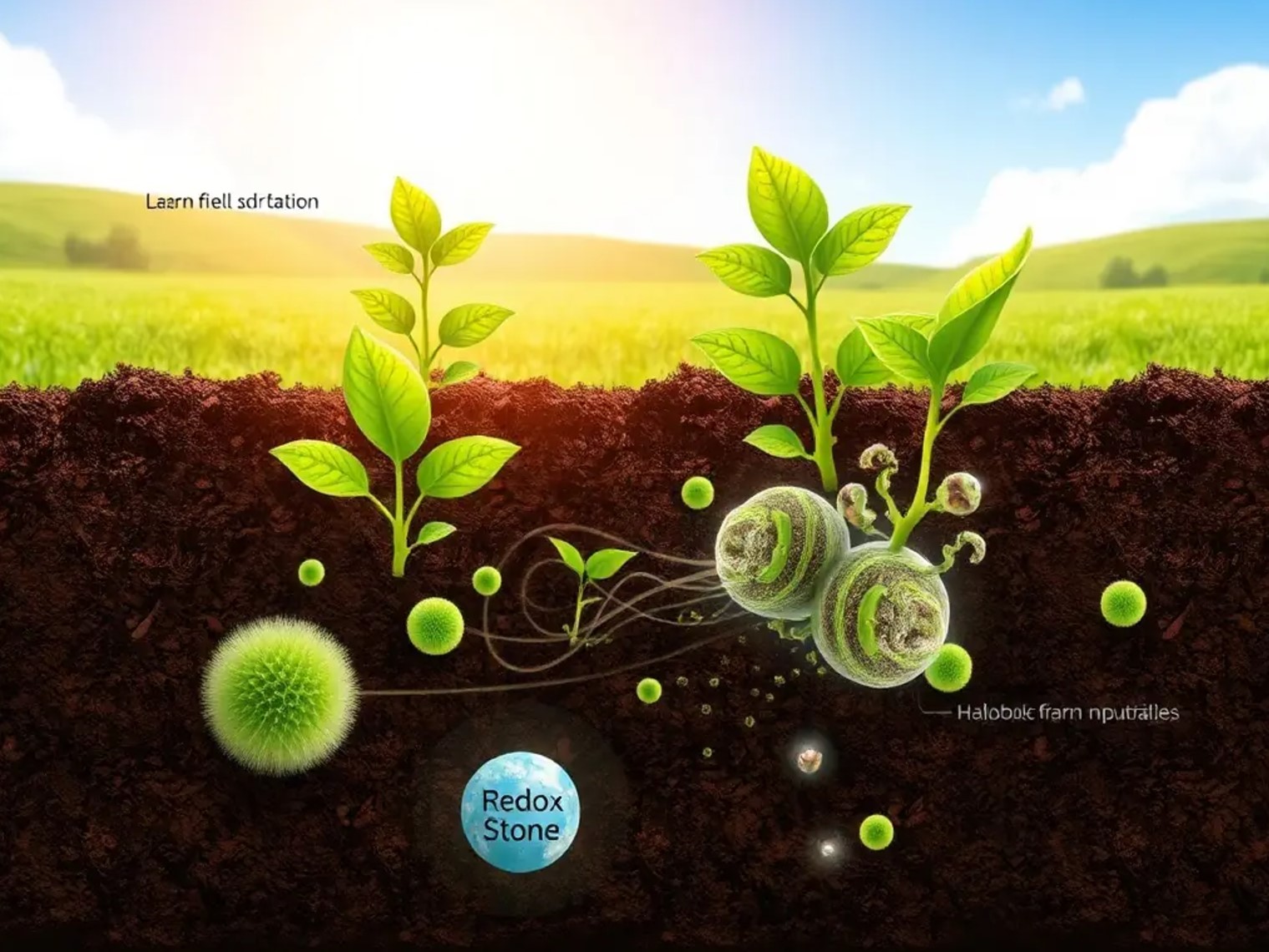
Agricultural Ecology Research Center
Objectives: Through empirical research in soil health and ecological restoration, we aim to increase crop productivity while studying carbon sequestration and microbial activation. This research helps establish sustainable agricultural models and evaluate long-term restoration possibilities for agricultural ecosystems.
Study methods to neutralize acidic soil, enhance nutrient absorption, and increase crop yields.
Validate carbon sequestration effects in soil using RedoxStone to develop climate change response strategies.
Analyze RedoxStone’s impact on microbial activity to create healthy soil ecosystems.
Environmental Conservation Research Center
Objectives: We conduct research for environmental protection and conservation through contaminated soil and water restoration, heavy metal removal, and radioactive material neutralization. Our primary goal is to maintain a healthy ecological environment by addressing contaminated soil and water quality issues.
Study RedoxStone’s absorption and neutralization capabilities for contaminated soil purification and environmental restoration.
Research atmospheric fine dust and harmful substance absorption to improve air quality.
Study soil absorption to reduce the environmental impact of harmful substances in groundwater.
Research Philosophy and Environmental Values
Scientific Method
All research is based on thorough data collection and validation. Our empirical research focuses on delivering practical environmental solutions that generate both commercial and public value.
Sustainable Research
Every study at the institute is rooted in strategic research design aimed at long-term environmental impact. We employ sustainable research methods that can adapt to changing climates and environments to support soil restoration, carbon sequestration, and ecosystem recovery.
Collaboration and Innovation
Through partnerships with government agencies, the private sector, and international environmental organizations, we share our research results and implement innovative research methods to create better environmental solutions.
The Korea Soil Institute conducts its research and experimentation based on responsible environmental stewardship and social responsibility, working to protect the health of both humanity and the environment.
Core Research Activities and Achievements
The Korea Soil Institute conducts various environmental restoration and soil health recovery projects centered around RedoxStone technology, widely sharing research results through collaborations with domestic and international research institutions. Key research activities include
Through these diverse research activities, the Korea Soil Institute accumulates essential scientific data for addressing climate change and advancing environmental restoration.
Practical Application of Sustainable Environmental Solutions
The Korea Soil Institute develops innovative solutions that enhance environmental sustainability using RedoxStone. By focusing on agricultural productivity, livestock health, and improvements in aquaculture environments, the institute works toward a sustainable future.
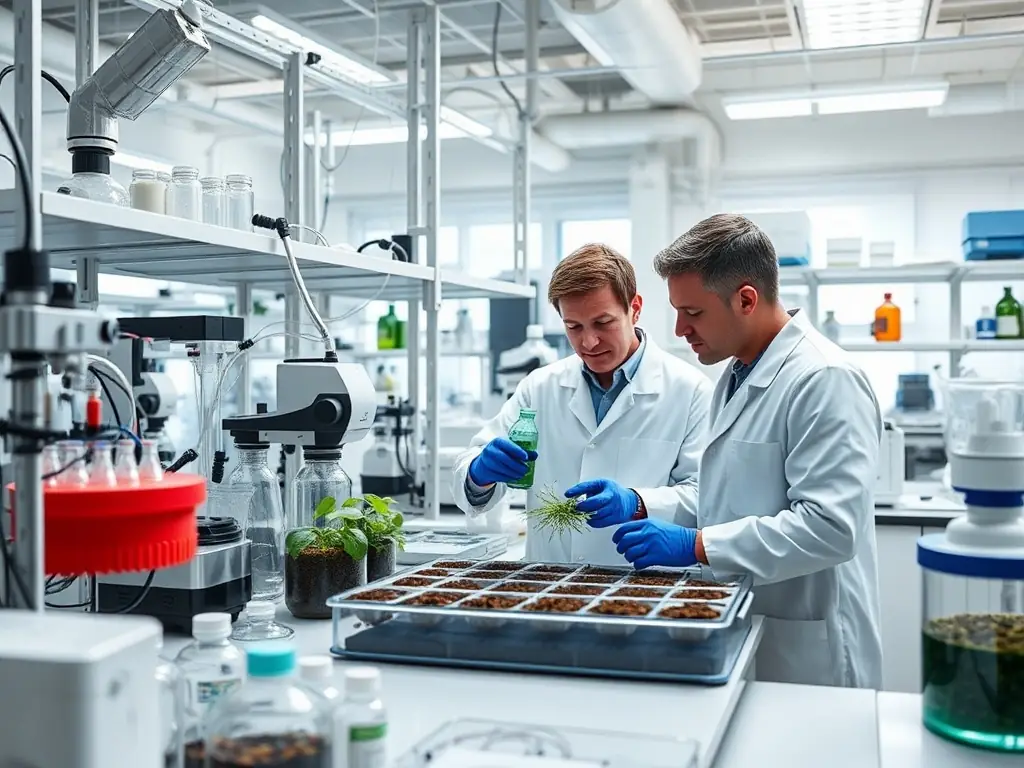
Advanced Soil Research
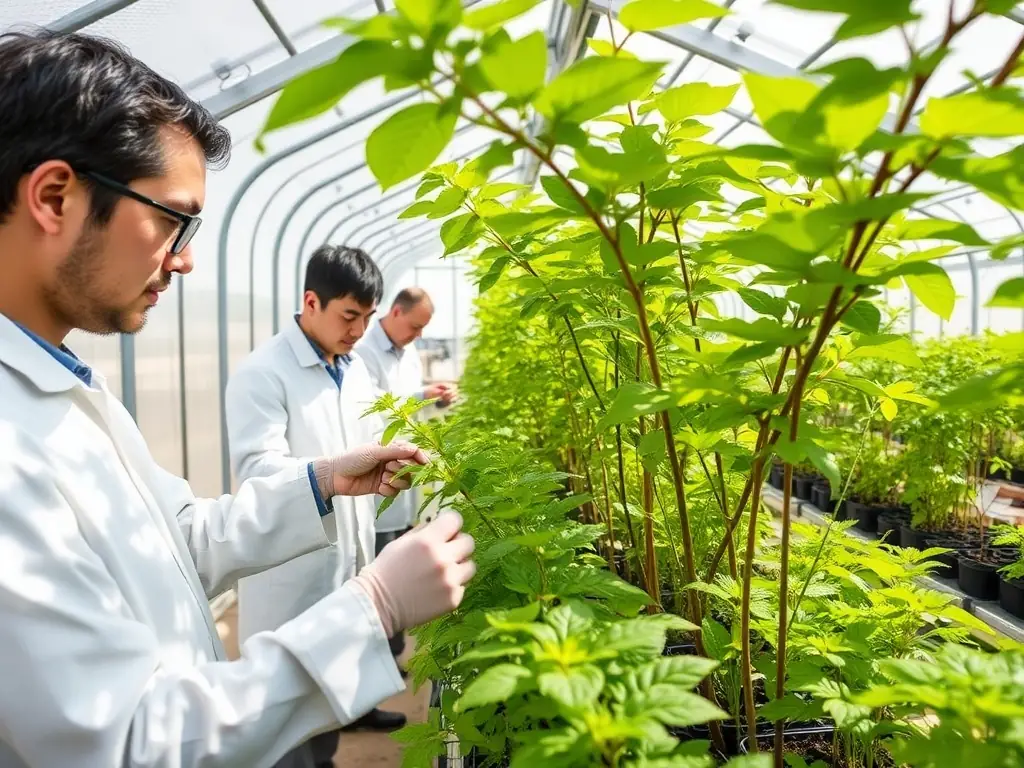
Innovative Fertilizer Solutions
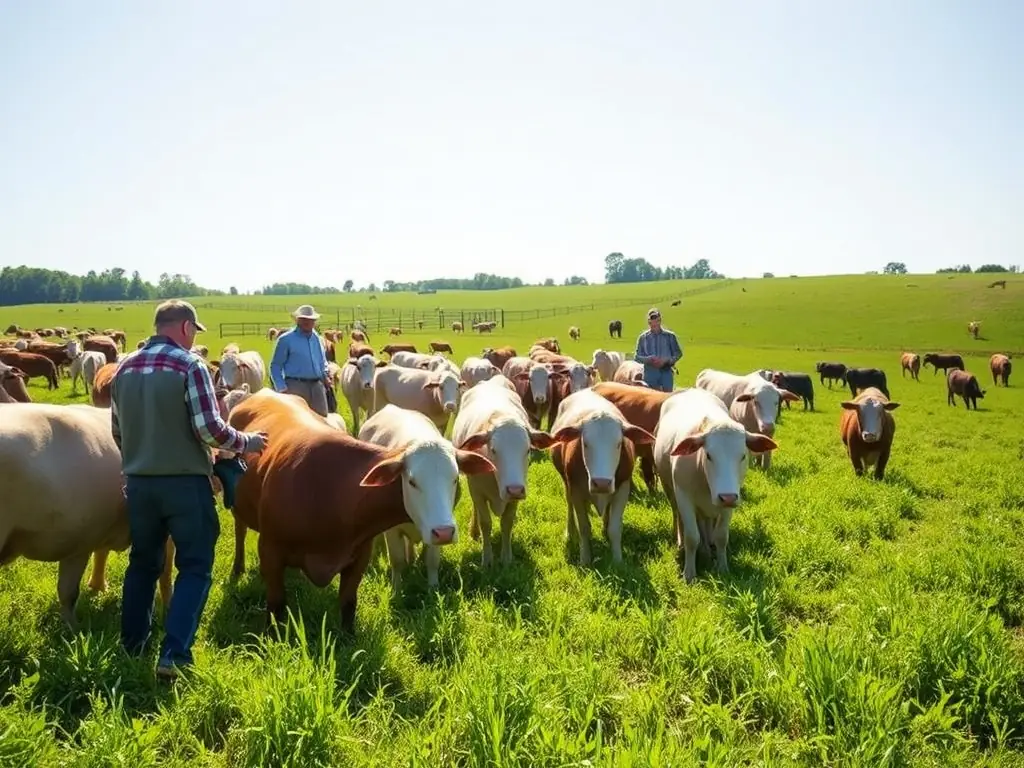
Livestock Health Improvement
Through these practical solutions, the Korea Soil Institute drives meaningful change in agriculture, livestock, and aquaculture, contributing to responsible environmental protection and sustainable development.
Driving Sustainable Industrial Practices
Korea Soil Lab is committed to advancing sustainable solutions through innovative R&D. Our efforts focus on enhancing productivity while ensuring environmental safety. By leveraging RedoxStone, we aim to address climate change and promote eco-friendly practices across various industries.
